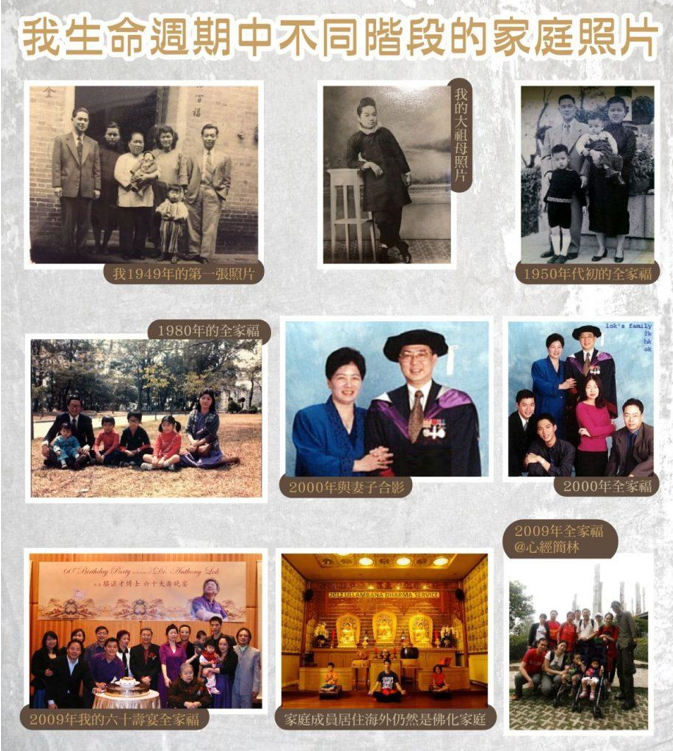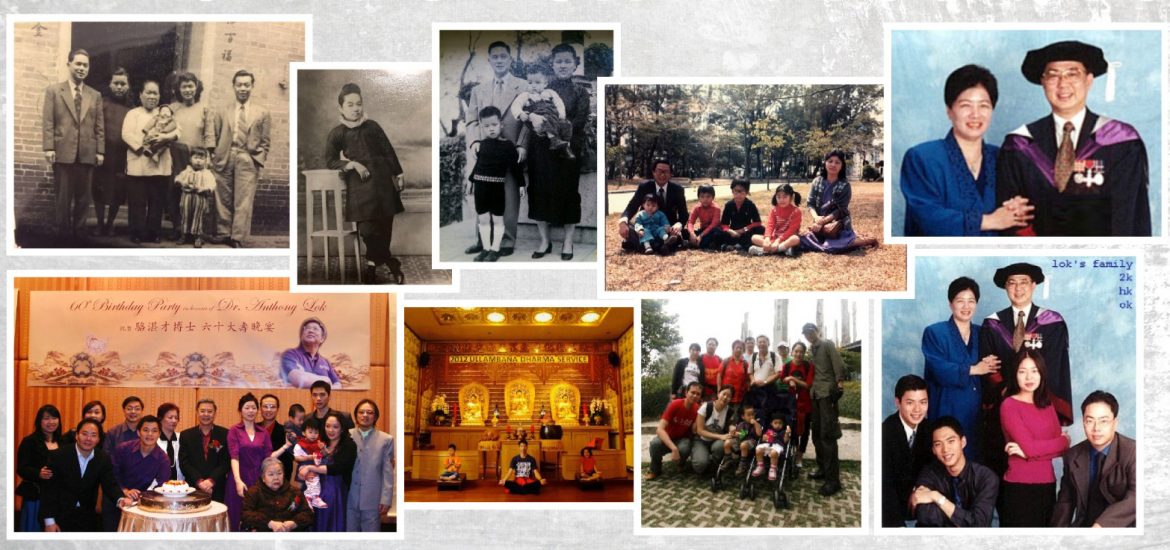Writing this article about my family prompted me to regain many sweet memories. Over time, these precious memories may fade away without being properly preserved as part of family history.
The best tool to regain memories
Photos are the best medium to trace old memories. While revisiting those old photos, I realized how quickly time passed! These photos have awakened precious memories and in-depth knowledge of the past at home.
I believe that at different stages of our lives, we may encounter many different categories of things that have always influenced our outlook on life towards the future. By recalling previous episodes, I gradually began to understand the fragments of my past life, and the hidden connections that my future self could see.

Such self-reflection and reviews indeed set a beautiful starting point for people who have entered the advanced years of their life cycle, in the process of life review. I happened to have such a wonderful opportunity to start writing life articles on different topics as a columnist, which inspired me to think and look back on the motivation of life.
The process of self-reflection and life review
According to the modern definition of age groups, it is difficult to have a clear standard for whether a person over 70 should be considered elderly or middle-aged. I do not think it makes real sense to distinguish age groups by a fixed scale. Measured in terms of actual life and positive perspectives, we can still enjoy productive and successful lives.
Therefore, I am not bothered by the social classification perspective of these age cohort groupings. Instead, I focus solely on how to make life meaningful while enjoying the joys and pleasures of personal achievements as I get older.
Family-related meaning and influence
The substantive definition of “family” can be roughly summarized as: one, Family is a group that can be traced back to lineage; two, the family is the most important group in any individual’s life; three, the family is the most basic and important group of individuals at the basic social level; and four, even in large families, there is usually a limit to the size of a family.
With advances in technology, changing cultural norms, modern priorities, and new forms of communication like the Internet, we may wonder or speculate how the family exists in a modern and changing society. Despite the constant changes in modern beliefs or living customs, the “concept of family” is still an “outlook on life” that cannot be ignored for anyone.
The traditional definition of the “nucleus family” refers to a simple family structure in which a man and a woman are married and have children. However, the modern definition and identification of “family” may have a more “broad and inclusive” meaning, or it may seem to have a significantly different meaning from the traditional and stereotypical concept of “family.”
Many years ago, Abraham Maslow coined a set of theories called “the hierarchy of individual needs.” At the bottom of the hierarchy are “basic needs,” which include: water, food, rest, and health. The “family” can be said to be the source of these necessities, and these necessities are the main building blocks for meeting other needs.
Multifaceted scientific studies and discussions have concluded that social connection is a need in the hierarchy because it can improve physical and mental health. “Family” is the source of “social connection” that can provide rich and important linkage. Therefore, we should not lose sight of the role of “family,” because “family” subtly evokes this inconspicuous but meaningful connection.
In my opinion, all families face a variety of challenges at times. Although family can allow us to enjoy the benefits associated with family, we may also need the support of others to get through difficult times when faced with struggling challenges.
When it comes to overcoming the challenges of family life, we may find support from our friends. At the same time, we can also seek coordinated support from professionals with experience in dealing with family dynamics and experience. Therefore, I strongly believe that the scope of the individual’s social circle needs to be extended wider and more diversely, so that this special support can be obtained early when it is necessary to overcome the challenges of family life.
For me, I am really lucky because all the immediate members of my family (including my daughter and three sons) are enjoying meaningful and successful lives in industries they themselves chose and love. Of course, I am convinced that caring parents should play an important role in educating members of the next generation. Therefore, I am constantly working in this direction to achieve the desired results.
The experience and benefit from the Dharma
As a devout Buddhist believer and disciple, I have been enhancing my understanding of the meaning of family through Buddhist philosophy and concepts, and constantly enhancing the power involved in family functions based on its associated meaning.
In fact, it may not be so obvious to people who easily take things for granted. Therefore, the average person often overlooks the above “hidden connections.” With this awareness and understanding, I often spread the concepts of Buddhist philosophy to people I meet in my personal social circle. I think that’s what any Buddhist should do – to get connected with a wider range of people.
Throughout my teaching career, I have always adhered to the concepts of “teaching without class” and “teaching according to aptitude,” and I believe that such teaching purposes are also one of the methods of “building good relationships.” The late Ven. Master Hsing Yun once said,
“In order to always give joy, I have to think of many ways to promote the Dharma. So I am very grateful to the believers at home and abroad, who are my teachers, who have contributed to my progress, increased my popularity, and facilitated my learning. I grew up in a poor family and didn’t have a chance to learn from books, but relying on the light of the Buddha, I was able to gather with these wonderful people to talk about the Dharma; My wish is to spread Buddhism to all corners of the world, to increase confidence, open doors to hearts, expand hearts, and enrich lives.”
(Excerpted from “Fo Guang Shan Founding Story. 210 (Vol. 6) House of Believers.”)
From this point of view, making good relationships is the path that must be taken in the practice of Buddhism on earth, and I am moving in this direction step by step to experience the power and influence of the Dharma.
“Volume of Dharma Power is the biggest force in the world. In the scriptures, it is said that if you can give alms or take vows, your merit is not as good as being able to endure humiliation, and the merit of enduring humiliation is beyond the reach of giving alms and taking vows. So in order to be comfortable, people who study Buddhism must learn to endure humiliation. In the family, if you can endure humiliation, the family can be peaceful; In society and/or in institutions, if you can endure humiliation, you will give people a good impression. Therefore, it is convenient to endure humiliation and it is at no cost at all. Endure humiliation can be Boromi, and you can be free from suffering and be happy. As for refinement, …”
(Excerpt from the Prajna Sutra on Life. 063/ Paramita: From One Shore to the Other Shore”)
From the above excerpt from the “Prajna Heart Sutra View of Life”, and “In the family, if you can endure humiliation, the family can be peaceful . . .,” I have further appreciated from these teachings the role played by the “family.” As the late Ven. Master Hsing Yun often teaches us, “There is a Dharma, there is a way!” Therefore, I often remind myself of the important role that “Buddhism” plays in my life, and encourage myself to strive to learn the tenet of “practising according to the Buddhist teachings” and move forward in the direction of “achieving positive results.”
Part 2 of the “Reflections of a Buddhist Layman” series by Dr. Anthony C C Lok


